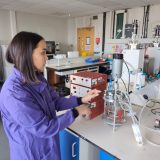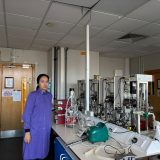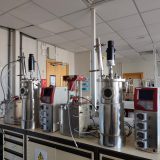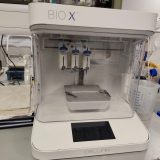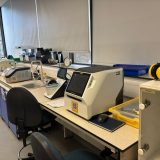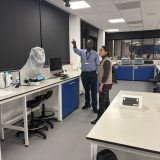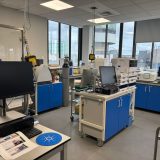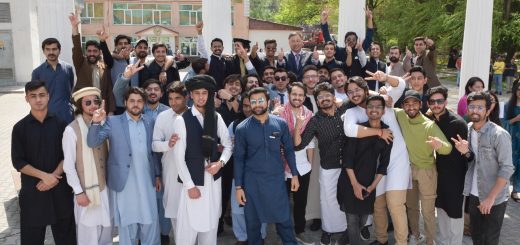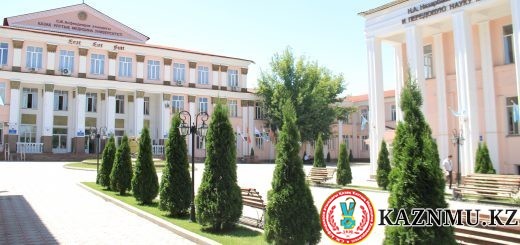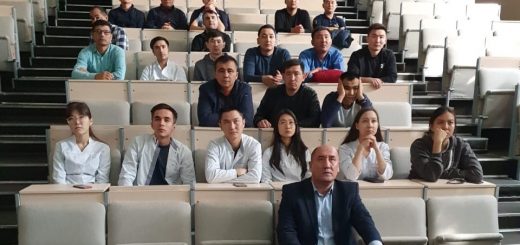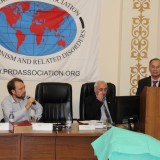Research internship for staff of the department of biotechnology and general chemical technology at the laboratory of applied biotechnology, UNIVERSITY OF WESTMINSTER (LONDON)
International cooperation is an integral part of the activities of higher education institutions and an important tool in ensuring the quality of education and its compliance with international standards in the training of competitive specialists who are in demand on the labour market in Kazakhstan and abroad.
It contributes to the integration of universities and institutes into the international academic and scientific-clinical space, promoting the internationalisation of activities through effective cooperation with world leaders in higher medical education, science and clinical practice.
Head of the Department of Biotechnology and General Chemical Technology (GCT) of the School of Pharmacy of the S.D. Kazakh National Medical University Asfendiyarova Zharparkulova Karlygash Altynbekovna, Head of the Department of Biotechnology and General Chemical Technology (GCT) at the School of Pharmacy of the S.D. Asfendiyarova Kazakh National Medical University, underwent a scientific internship at the Laboratory of Applied Biotechnology of the School of Natural Sciences at the University of Westminster (University of Westminster QS Ranking) in the British capital London from 27 October to 7 November 2025.
Biotechnology is one of the most rapidly developing sciences, which has a significant impact on biological and medical sciences, agricultural sciences, as well as on the development of many industries and agriculture. The Department of Biotechnology and OHT is one of the youngest and most dynamically developing departments of the university. The department’s lecturers, master’s students and doctoral students are actively involved in research projects and successfully collaborate with research organisations, pharmaceutical companies and drug manufacturers.
During her research internship, K.A. Zaparukulova conducted research on the biotechnology of biosurfactants, studied the experience of organising a biotechnology laboratory and preparing new scientific projects. This university ranks 741-750 in the 2025 QS World University Rankings (https://www.topuniversities.com/world-university- rankings?search= University %20of %20Westminster).
The internship was supervised by Professor Godfrey Kyazze, Professor of Sustainable Biotechnological Engineering, Co-Director of the Sustainable Biotechnology Research Group, and Head of the Master’s Programme in Applied Biotechnology at the School of Biological Sciences, University of Westminster.
Akbota Kanagat, a doctoral student in the Department of Biotechnology and OHT, has been doing a research internship in the same laboratory since September. Godfrey Kyaz is her overseas supervisor. The topic of her PhD thesis is ‘Research on the production technology and standardisation of biosurfactants with antimicrobial activity’.
The sustainable biotechnology research group aims to use biological resources for the production and development of a range of bioproducts and their application in environmental, medical and chemical/biochemical purposes. It studies how biotechnology can be used to minimise waste and make more efficient use of resources. The research group’s motto is: ‘Solving global problems in the areas of water supply, energy and food security, health care, environmental protection and sustainable industrial production with the help of biotechnology.’
Sustainable biotechnology is a field of science that is experiencing rapid growth due to the growing demand for bioproducts produced using renewable resources, which are therefore sustainable, leading to the formation of a strong circular bioeconomy. Examples of bioproducts include biofuels, biopolymers, biosurfactants, biofertilisers, biopesticides, platform chemicals, biopharmaceuticals, nutraceuticals, food products, including those produced using precision fermentation, and enzyme-based detergents.
K.A. Zaparuklova’s internship at the applied biotechnology laboratory of one of Europe’s leading universities was very useful and fruitful and will contribute to the improvement of scientific and pedagogical activities, the development of research in pharmaceutical biotechnology, and the preparation of new scientific projects




